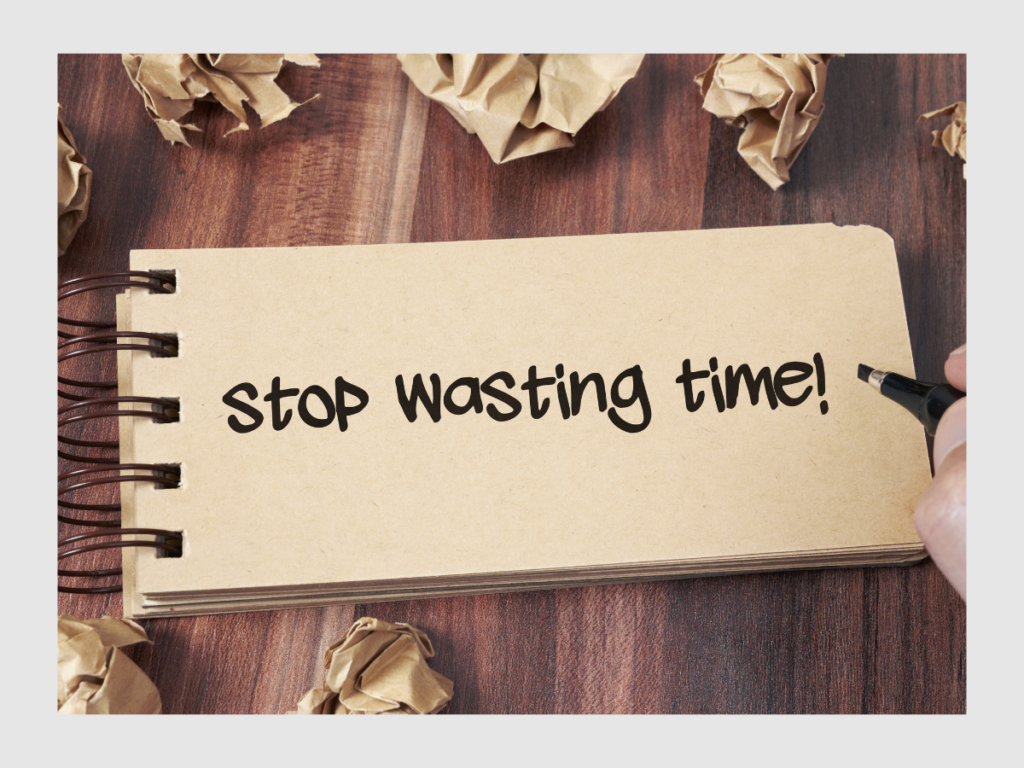Procrastination No More: Overcoming Time-Wasting Habits

Do you find yourself caught in procrastination, watching hours slip by as tasks pile up untouched? Don’t worry; you’re not alone. We all face the challenge of procrastination, but the good news is that there are effective ways to break free from its clutches and boost your productivity. In this guide, we’ll look at how you can overcome procrastination and get more done, one step at a time.
1. Understanding Procrastination: Unraveling the Puzzle
Procrastination often seems like an enigma. Why do we put off tasks we know we should be doing? A common factor that affects many individuals is fear. This fear can be of various types, such as fear of failure, fear of not being good enough, or even fear of success. It’s like that feeling of hesitation before jumping into a cold swimming pool; the anticipation can be paralyzing. By recognizing this, you can start to unpick the threads of procrastination.
2. The Hidden Costs of Delay: How Procrastination Affects You
Procrastination isn’t just about unfinished tasks; it’s also about the toll it takes on your mental well-being and overall productivity. Imagine a garden left unattended; weeds grow, and the flowers wilt. Similarly, delayed tasks can clutter your mind and hinder your personal growth.
3. The Tricky Triggers of Procrastination
Imagine you’re about to start a project, but suddenly your phone buzzes with a notification. You check it, then lose track of time scrolling through social media. This is a classic example of how triggers like notifications can derail your focus and send you into a procrastination spiral. Identifying these triggers helps you avoid them and stay on track.
4. Prioritization: Your Ultimate Weapon Against Procrastination
Let’s say you have a mountain of tasks to tackle. Instead of trying to conquer the entire mountain at once, start by picking up the smallest pebble. Prioritization is that pebble. It’s like packing a suitcase; you put the essentials in first, and if there’s room, you add the non-essentials. You’ll find it easier to start and keep going by breaking tasks into smaller, manageable steps.
5. Time Blocking: Your Personal Productivity Blueprint
Imagine your day as a blank canvas, ready to be filled with tasks and activities. Time blocking, a method akin to crafting a beautiful painting, involves dividing your day into distinct blocks of time allocated for focused work, leisure, and breaks. It’s like organizing your day into different segments, each serving a specific purpose. This technique, when applied effectively, can significantly enhance your productivity and help you overcome the grip of procrastination.We recommend buying your favorite toothbrush at super low prices with free shipping, and you can also pick up your order at the store on the same day.
For instance, consider the concept of the Pomodoro Technique. Picture setting a timer for 25 minutes and immersing yourself in a single task during this time frame. This focused work period is often referred to as a “Pomodoro.” Once the timer goes off, take a well-deserved 5-minute break to recharge. This rhythmic approach keeps you engaged and ensures that you’re making steady progress while avoiding burnout.
6. Conquering Distractions: Practical Techniques
Let’s envision a scenario: you’re engrossed in reading a book, but the television in the background is blaring loudly. Your attention is constantly shifting between the book and the TV, and as a result, your reading progress is hindered. Similarly, distractions can hijack your focus and disrupt your workflow, leading to procrastination and reduced productivity.
To counter this, consider employing techniques that are simple yet effective. Take the 2-Minute Rule, for instance. If you encounter a task that can be completed in less than 2 minutes, tackle it immediately. Whether sending a quick email or tidying up your workspace, this approach prevents small tasks from piling up and creating unnecessary clutter in your mind.
Furthermore, let’s delve into the Zeigarnik Effect. This psychological phenomenon highlights our tendency to remember uncompleted or interrupted tasks more vividly than completed ones. Imagine a TV show ending on a cliffhanger; you can’t help but think about it until you know what happens next. Similarly, using the Zeigarnik Effect to your advantage involves starting tasks to complete them, as the nagging feeling of “unfinished business” can motivate you to stay focused and see tasks through to completion.
7. Mindfulness: Your Ally in the Fight Against Procrastination
Imagine you’re eating a delicious meal. Mindfulness is savouring every bite, fully immersed in the experience. Similarly, mindfulness when working means giving your full attention to the task at hand, minimizing the urge to procrastinate. Techniques like deep breathing and meditation can train your mind to stay present and productive.
8. SMART Goals: Your Roadmap to Success
Creating goals is like planning a road trip. You need a map, a destination, and a plan to get there. That’s where SMART goals come in: Specific, Measurable, Achievable, Relevant, and Time-bound. For example, instead of setting a goal that is unclear or imprecise like: “exercise more,” set a SMART goal like “walk for 30 minutes every morning for a month.” Keeping track of progress and staying motivated becomes simpler.
9. Declutter Your Space, Declutter Your Mind
Imagine your workspace as a blank canvas. A cluttered canvas can’t hold a masterpiece. Decluttering your space makes it more visually appealing and creates an environment conducive to productivity. Start small; clear your desk of unnecessary items, organize your files, and create a space to focus without distractions.
10. Accountability Partners: Your Support System
Think of your goals as seeds you plant in a garden. Without water and sunlight, they might wither away. Accountability partners are like rain and sunshine for your goals. Share your goals with a friend or colleague who can encourage you, check in on your progress, and provide that extra push when needed.
11. Embracing Progress Over Perfection
Imagine learning to ride a bike. You might wobble and stumble at first, but with practice, you improve. The same applies to overcoming procrastination. Embrace the idea that progress is more important than perfection. Don’t beat yourself up if you slip into old habits; acknowledge, learn from, and keep moving forward.
Conclusion
Procrastination is a challenge, but it’s not insurmountable. You can gradually overcome this time-wasting habit by understanding its triggers, implementing effective strategies, and practising patience. Additionally, by utilizing the simple yet effective techniques mentioned above, you can enhance your ability to maintain focus and reduce distractions over time. These methods don’t require extensive prior knowledge but can make a significant difference in your daily productivity and ability to conquer procrastination effectively. Remember, it’s a journey, and every small step you take significantly improves your productivity and overall well-being.
FAQs
Q1: Why do I always feel the urge to procrastinate, even when I know the task is important?
A: Procrastination is often driven by fear of failure or desire for perfection. By recognizing these emotions, you can take steps to manage them better.
Q2: Can procrastination affect my mental health?
A: Chronic procrastination can increase stress, anxiety, and decreased self-esteem. Overcoming procrastination can have positive effects on your mental well-being.
Q3: How does mindfulness help with procrastination?
A: Mindfulness encourages you to focus on the present moment, reducing the pull of distractions and making it easier to engage in tasks.
Q4: What if I get distracted during the Pomodoro Technique?
A: Distractions are natural, especially when starting. Over time, your ability to stay focused will improve as you practice and refine the technique.
Q5: How can I find an accountability partner who understands my goals?
A: Look for someone who shares your commitment to personal growth, communicates effectively, and offers genuine support and encouragement.
Make the commitment to overcome procrastination today. With the right strategies and a supportive mindset, you can reclaim your time, boost your productivity, and achieve the goals that matter most to you.
